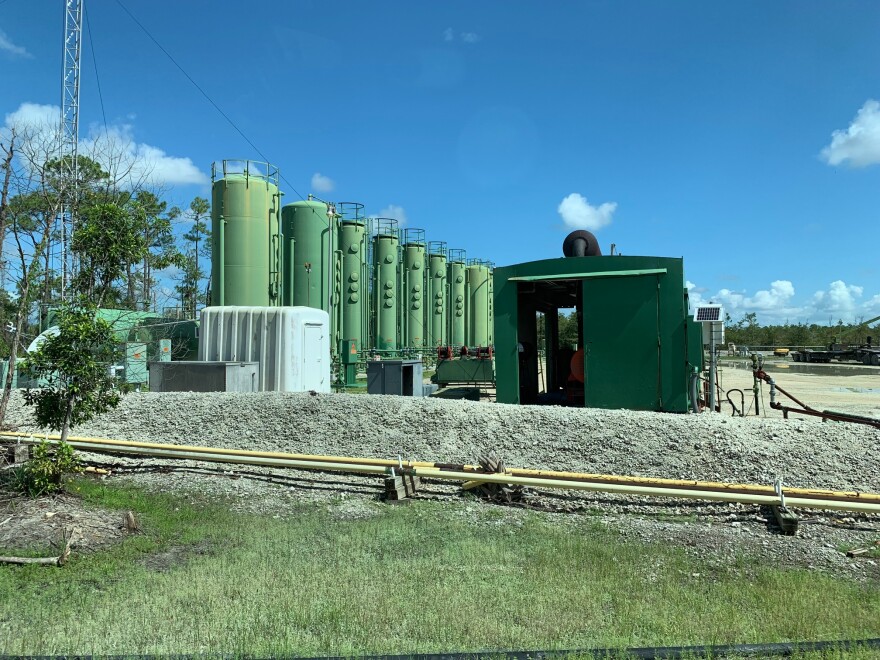The U.S. Army Corps of Engineers has found a Texas company damaged wetlands in Big Cypress National Preserve during its search for oil.
In a letter to Burnett Oil last week, Corps officials said in January they visited a 110-square-mile area in the preserve where the company was using heavy, 33-ton thumper trucks equipped with sonic equipment to look for oil. When they examined the area, they found wetlands had been cleared and the land elevation altered, damaging water quality in violation of the Clean Water Act.
Because of the damage, any future survey work will now require a permit, the Corps said. The earlier work did not require such a permit.
“It took us five years of advocacy to get here,” Allison Kelly, a senior attorney at the Natural Resources Defense Council, said in an email.

Kelly said Burnett will also have to obtain new exploration permits from the state of Florida because its old one had expired. Gov. Ron DeSantis has said he opposes oil exploration in the state. In January, he announced the state’s purchase of 20,000 acres in western Broward County to protect it from exploration by a South Florida real estate family.
Burnett plans to survey about 230,000 acres in the 700,000-acre preserve. The current permit allows Burnett to survey about 70,000 acres, Kelly said.
That approval prompted a yearlong legal fight after the Defense Council, the Center for Biological Diversity and other conservation groups sued to stop the exploration, arguing that it could damage wetlands. They said Burnett’s plans for five new staging areas needed a more careful review than the one conducted by the National Park Service since four of the areas would occur in pristine wetlands that could damage more than a thousand miles of untouched land. They also argued that approving the test without a full review could set a precedent for expanding oil exploration and lead to less land being more fully protected with a wilderness designation.
Park officials, however, said that while some habitat and wildlife could suffer from short-term stress, the damage would likely be minimal if workers complied with a lengthy list of requirements. Some wildlife could even benefit from new data collected, the Service said.
A judge sided with Burnett and the park, finding the work would unlikely do harm and allowing Burnett to proceed with surveys in 2017 and 2018.
Burnett must repair damage to the soil and wetlands, Kelly said, but not replant any plants damaged during the work, including the preserve’s beloved cypress trees.
The latest findings “underscore why seismic activities shouldn’t be allowed in the preserve at all. The immediate threat to Florida’s captivating biodiversity is too great,” said Jaclyn Lopez, a Center senior staff attorney.
An earlier version of this story incorrectly stated Burnett Oil has permission to survey 90,000 acres. The permit covers 70,000 acres.
WLRN depends on donors to remain South Florida’s leading nonprofit, most trusted source of news and information. Support our mission by giving monthly as a sustaining member of Friends of WLRN or make a one-time donation of your choice. Thank you. Click here to give.
Copyright 2020 WLRN 91.3 FM. To see more, visit WLRN 91.3 FM. 9(MDAyMTYyMTU5MDEyOTc4NzE4ODNmYWEwYQ004))





